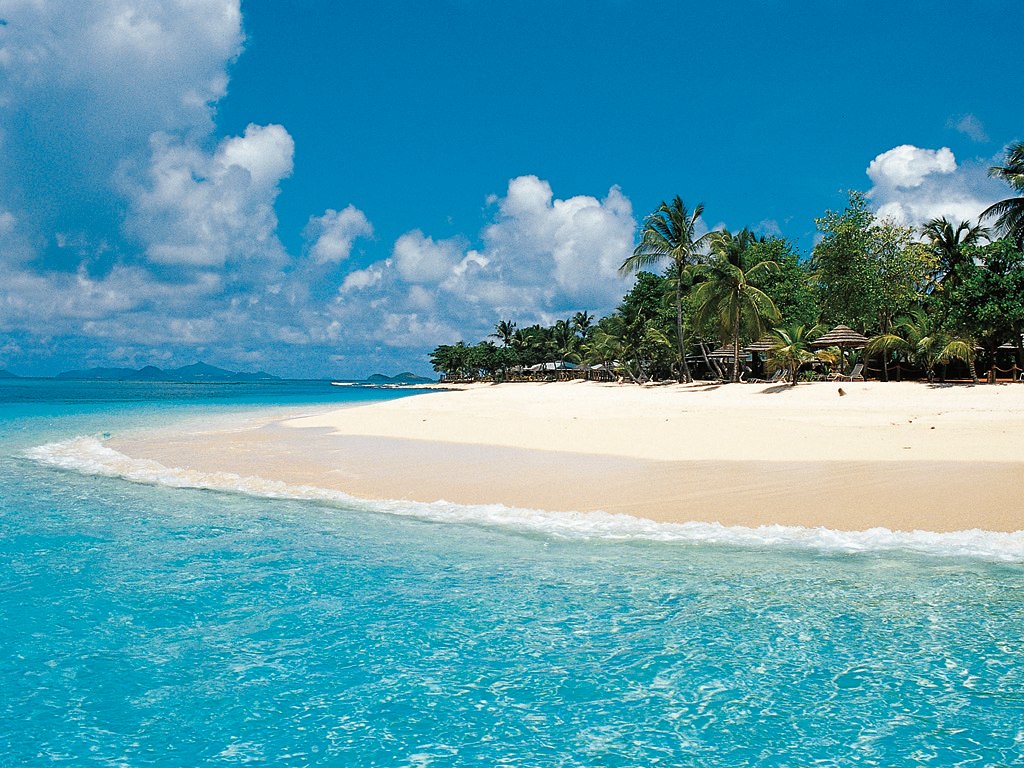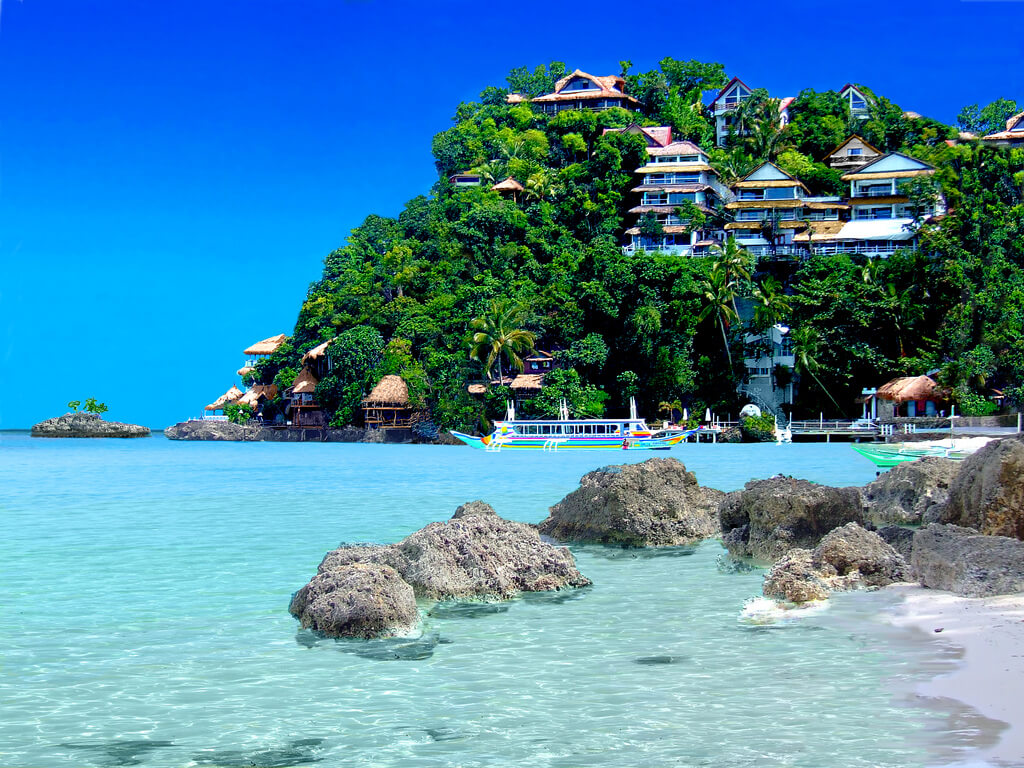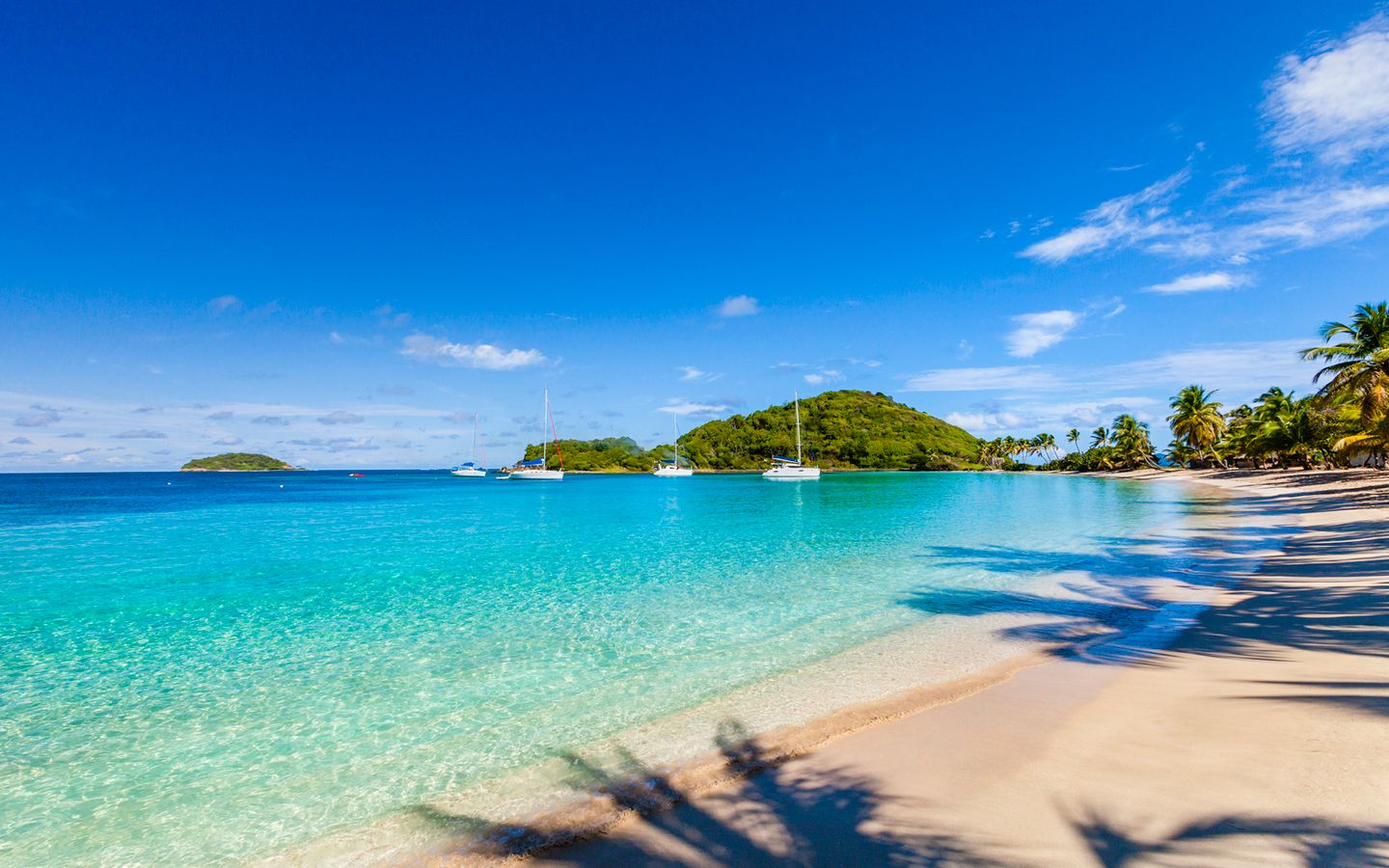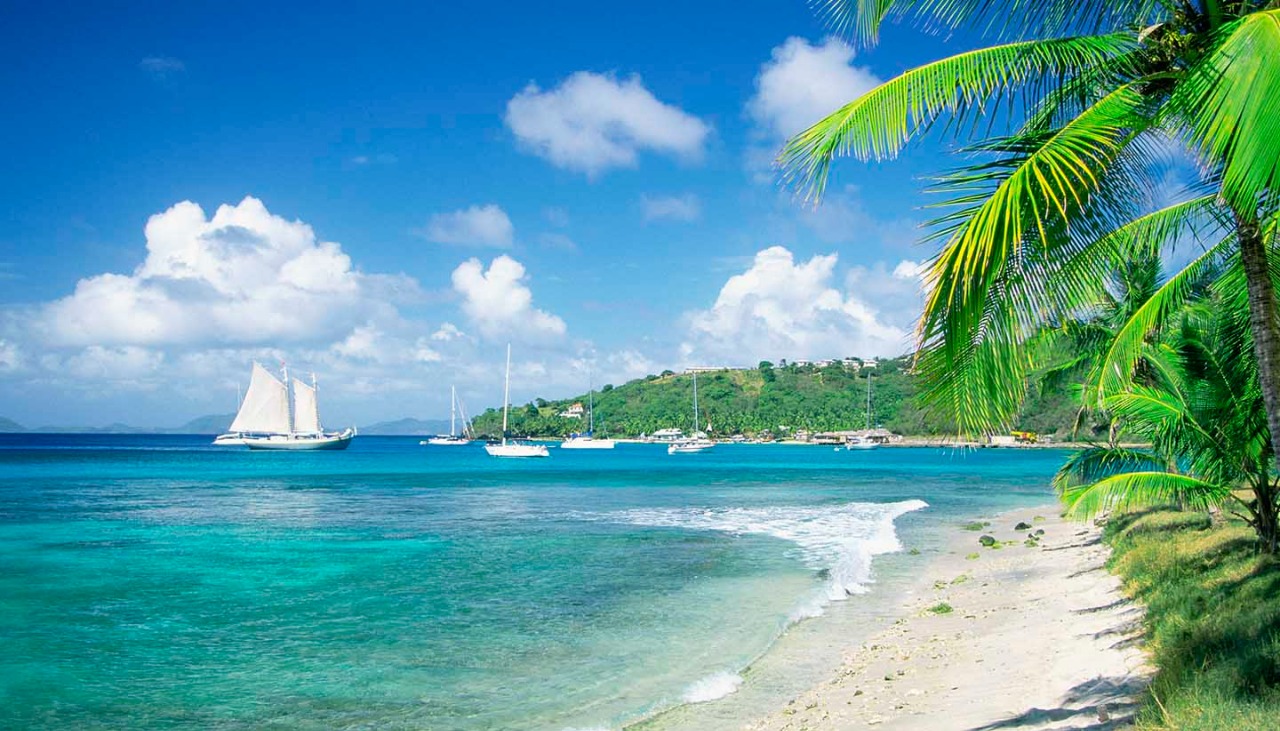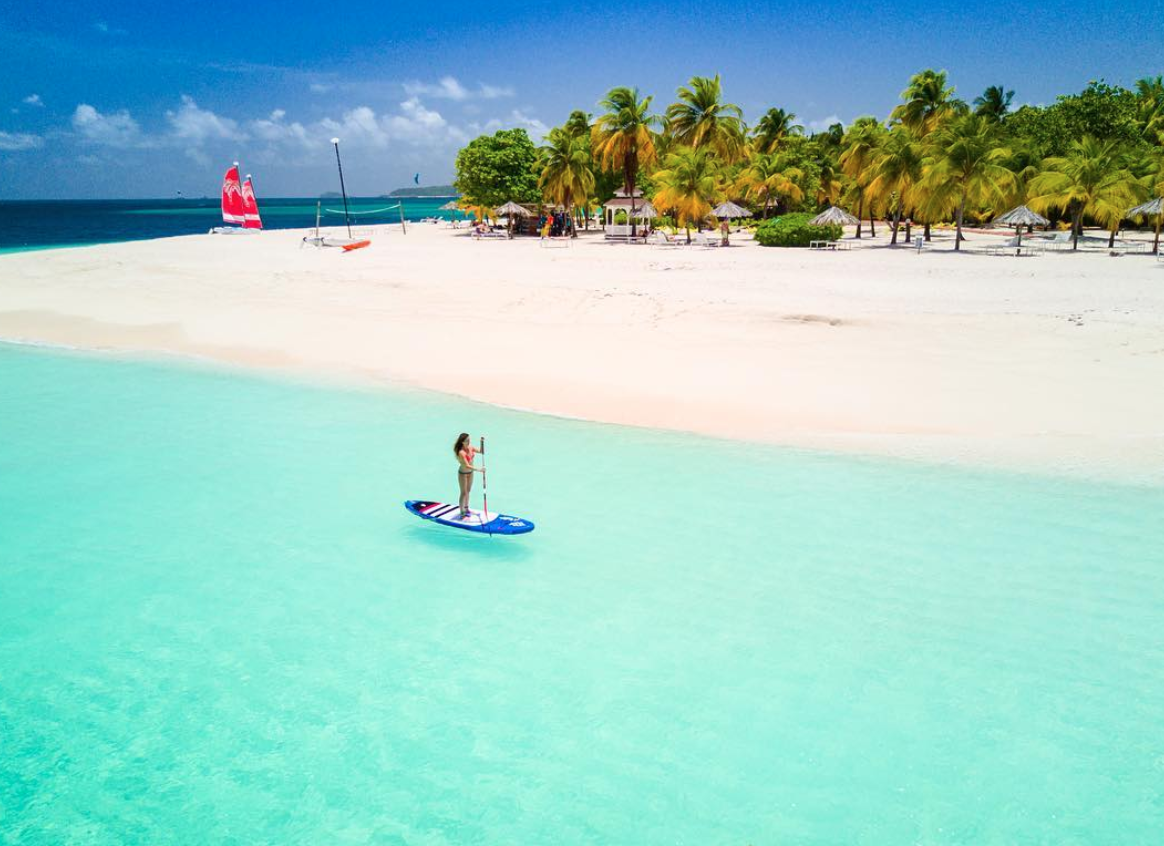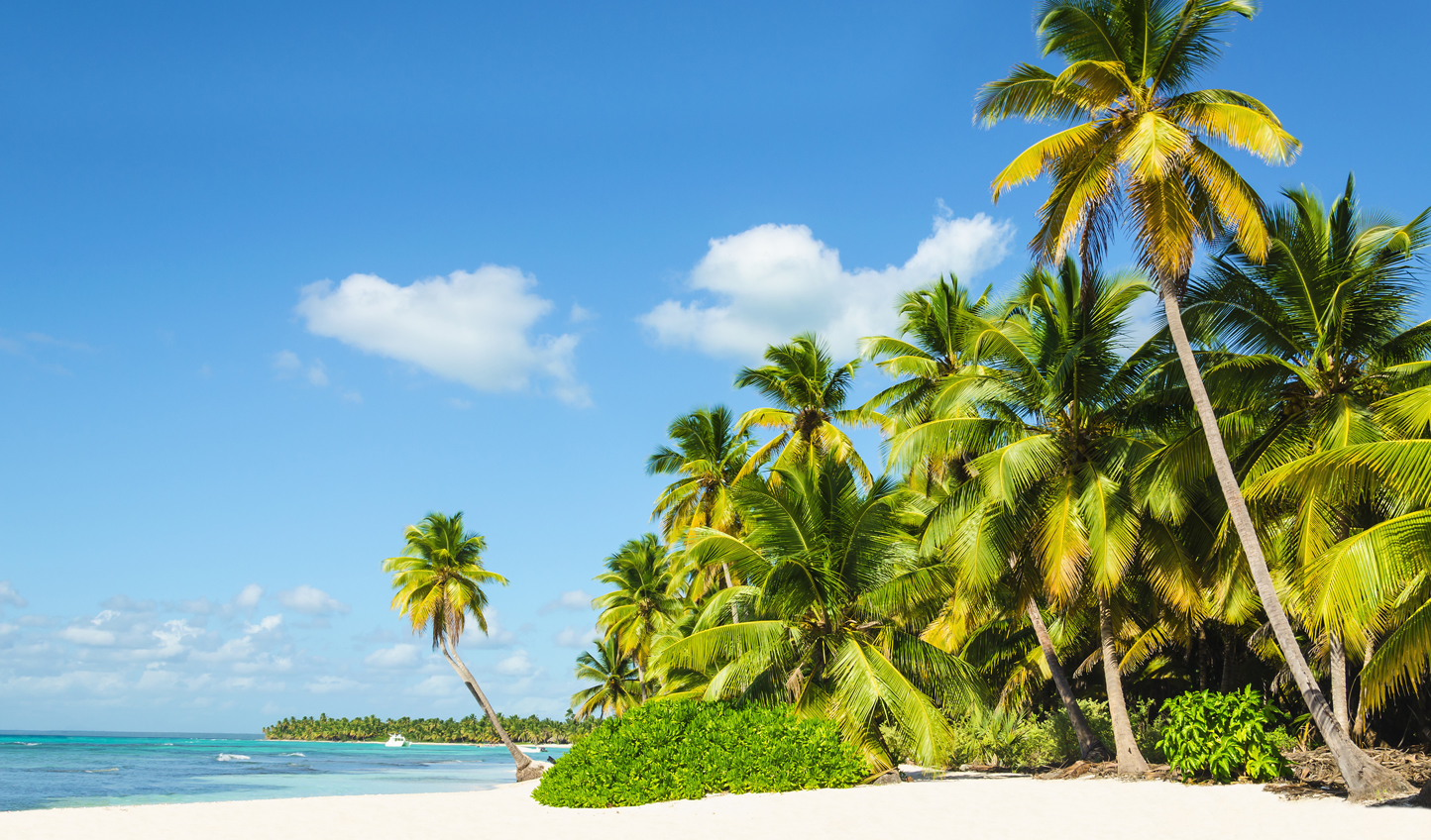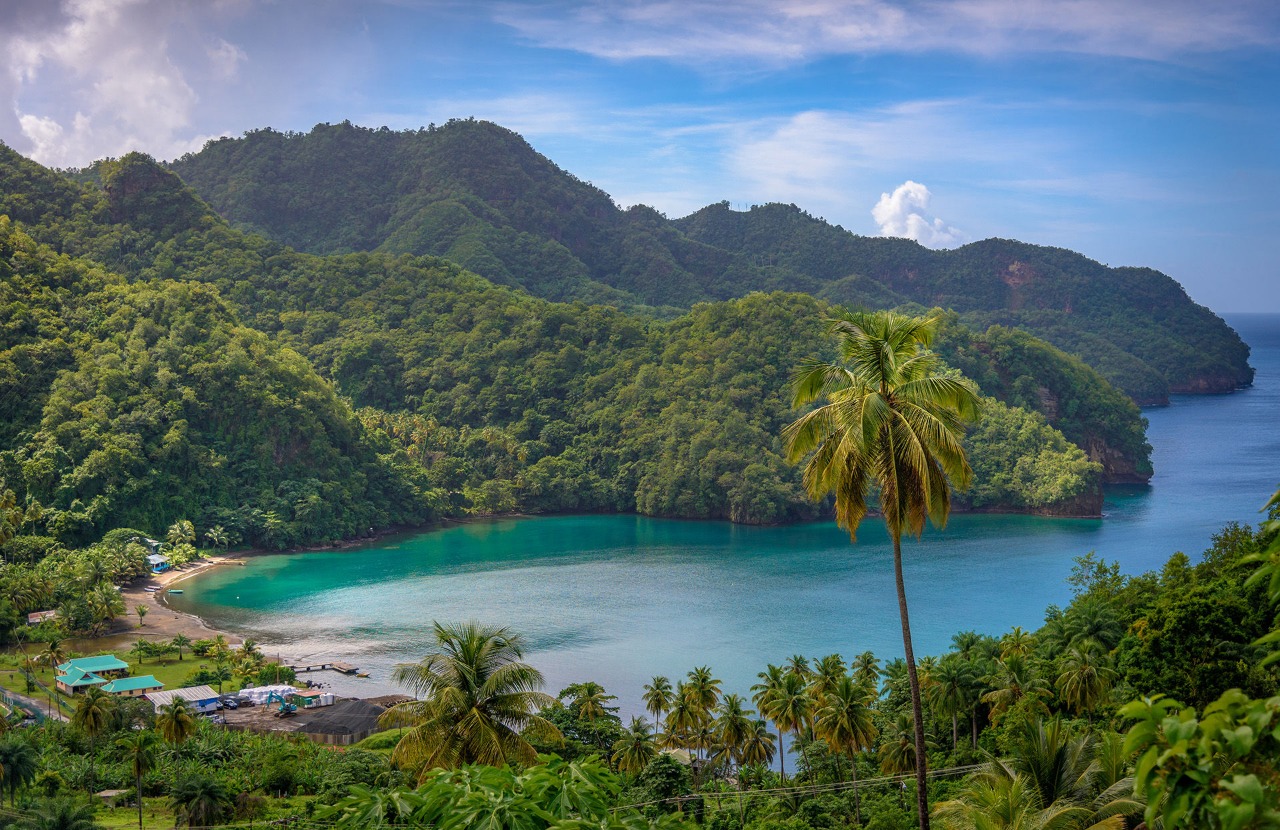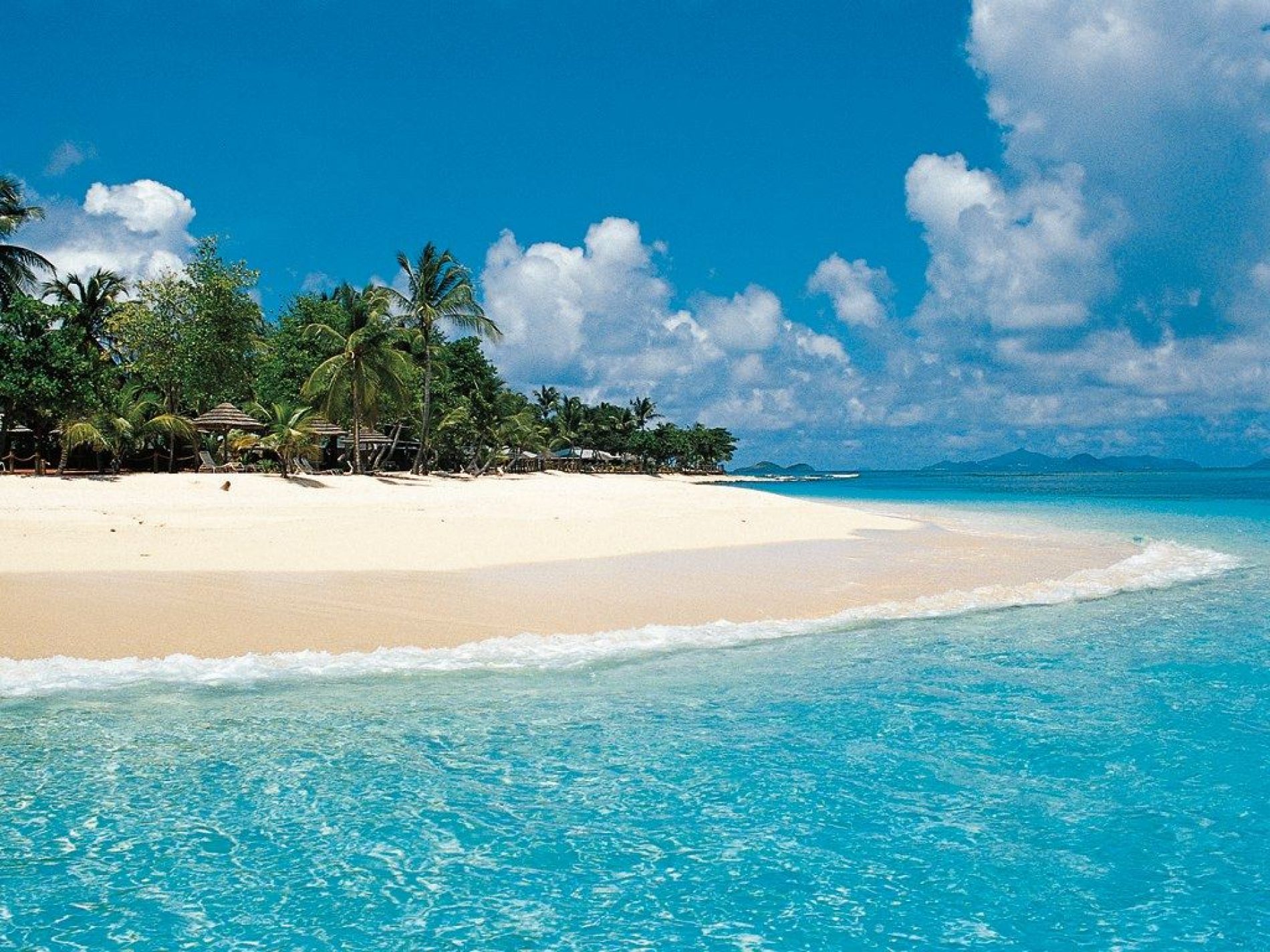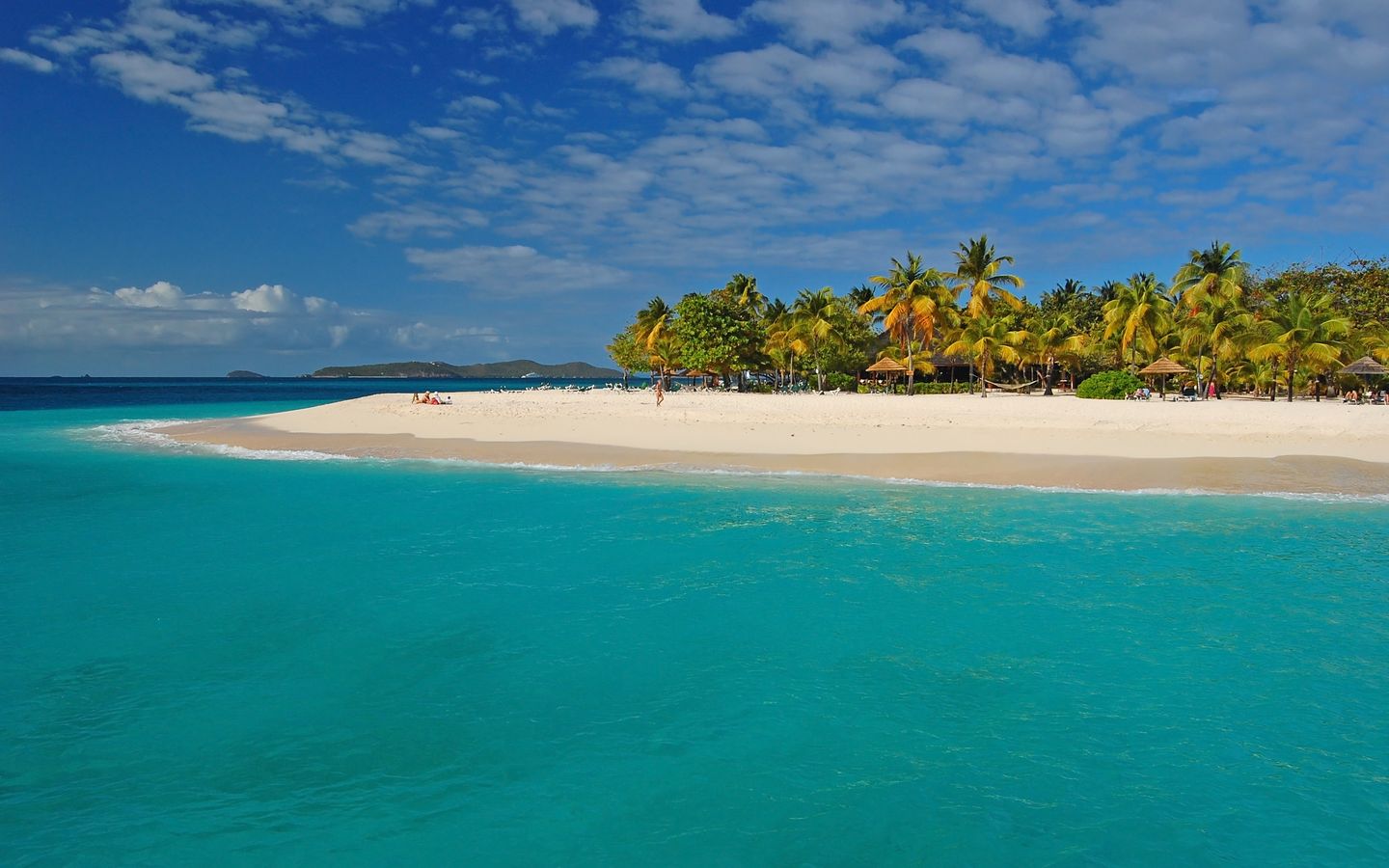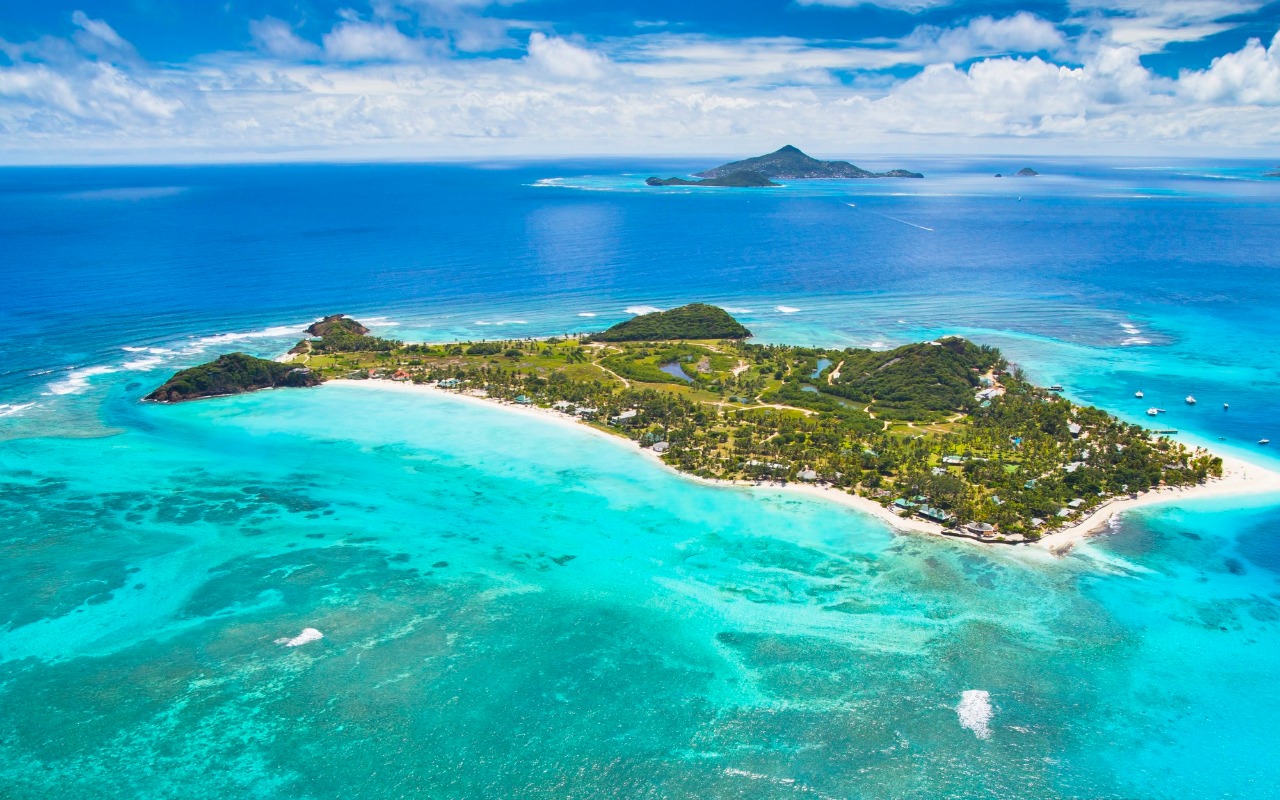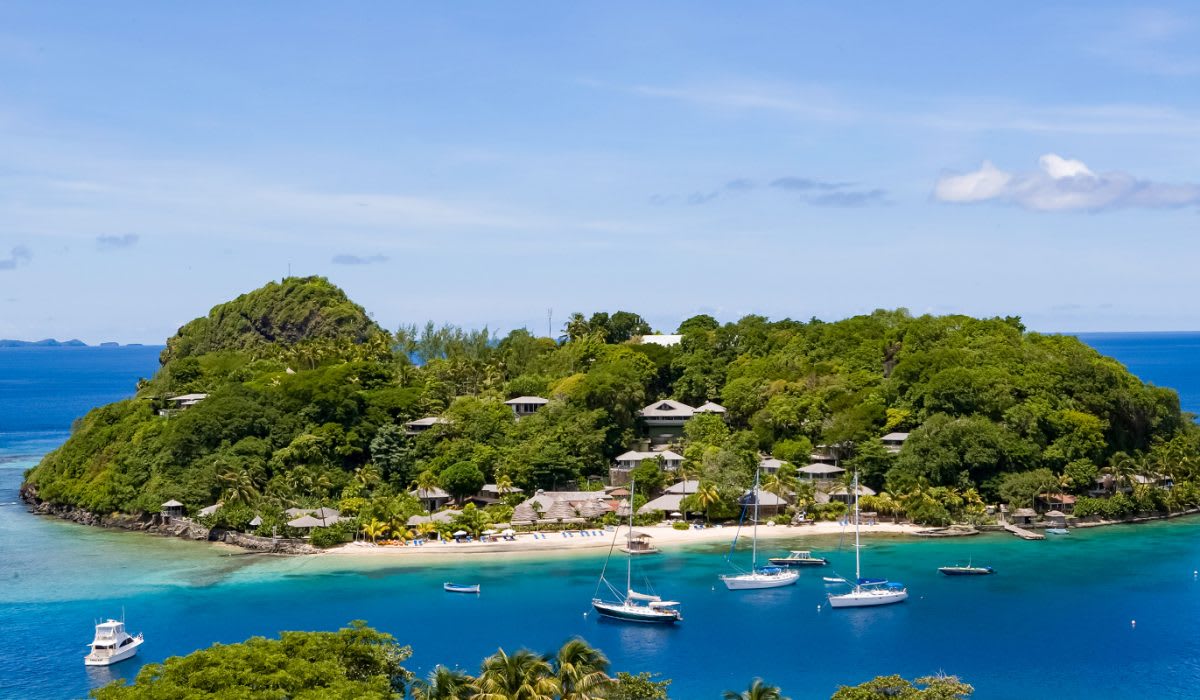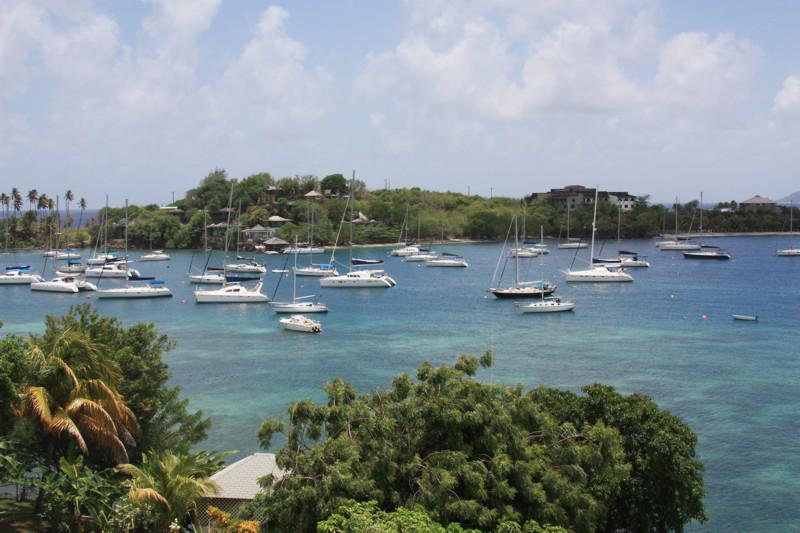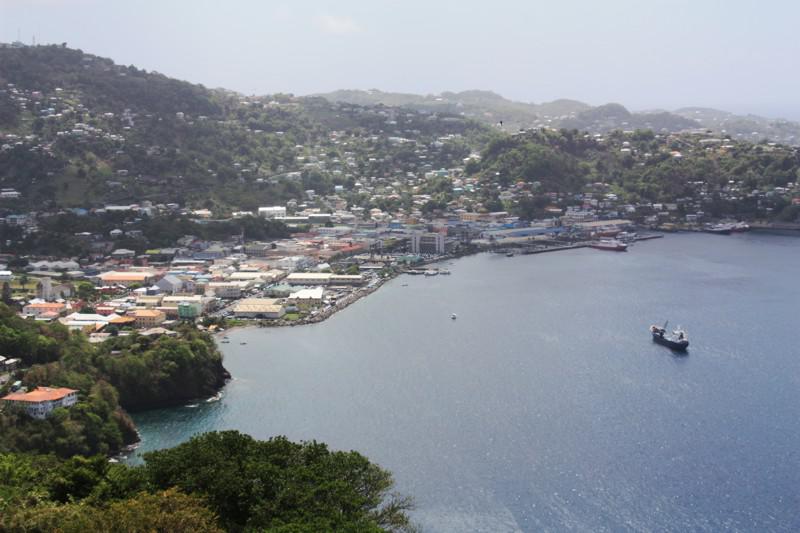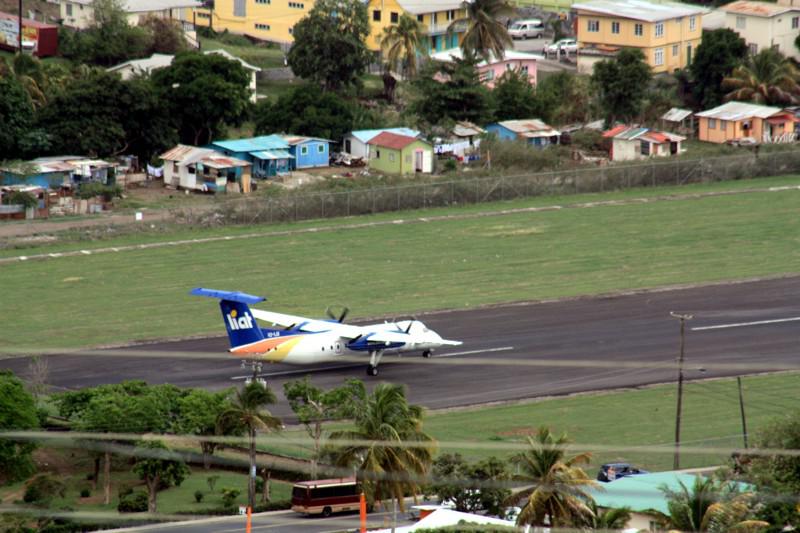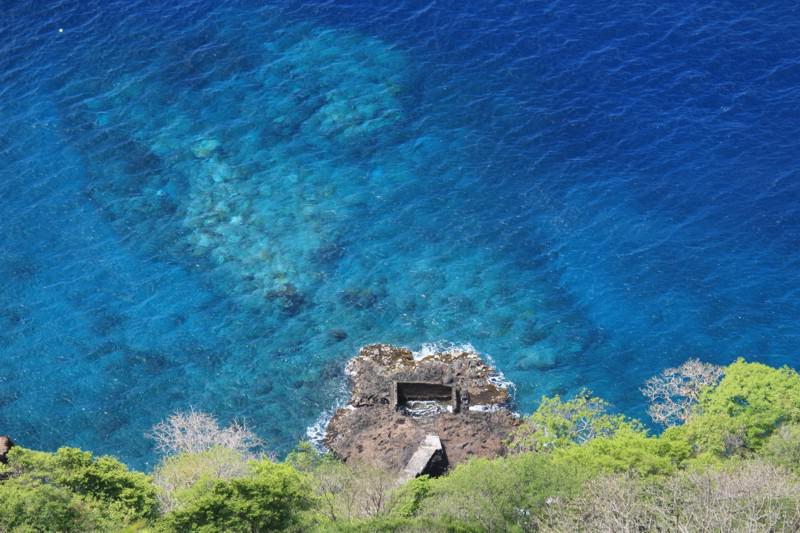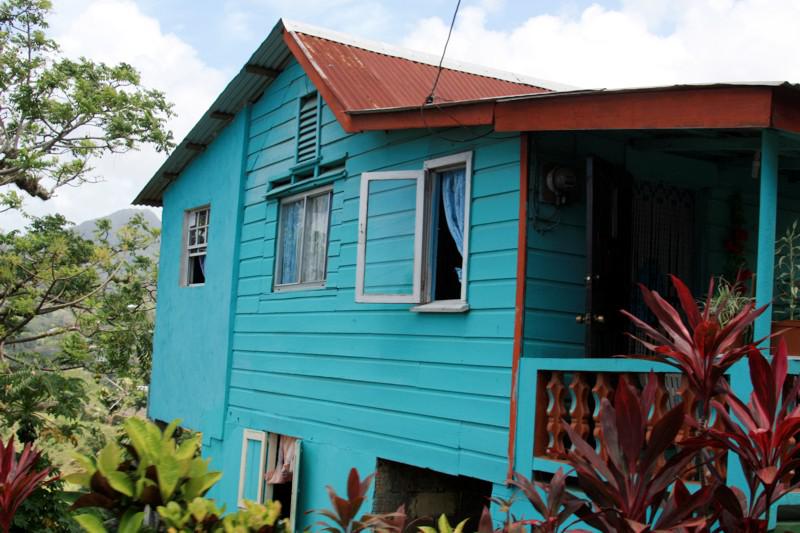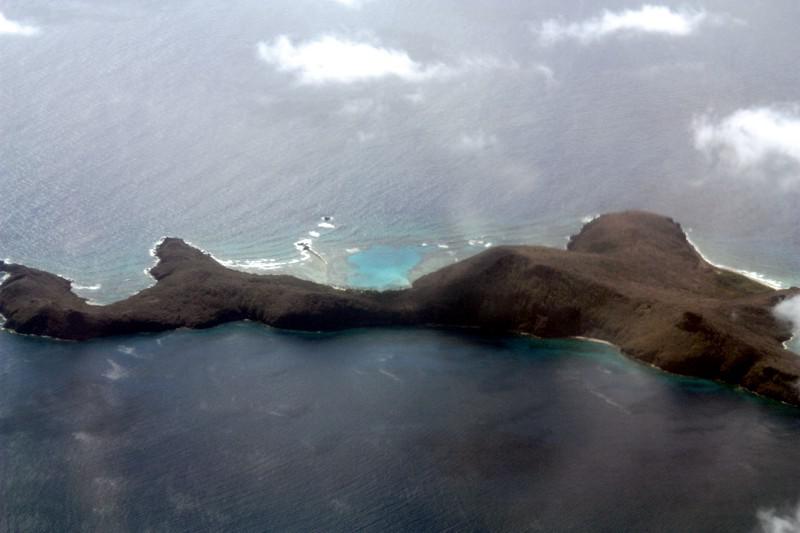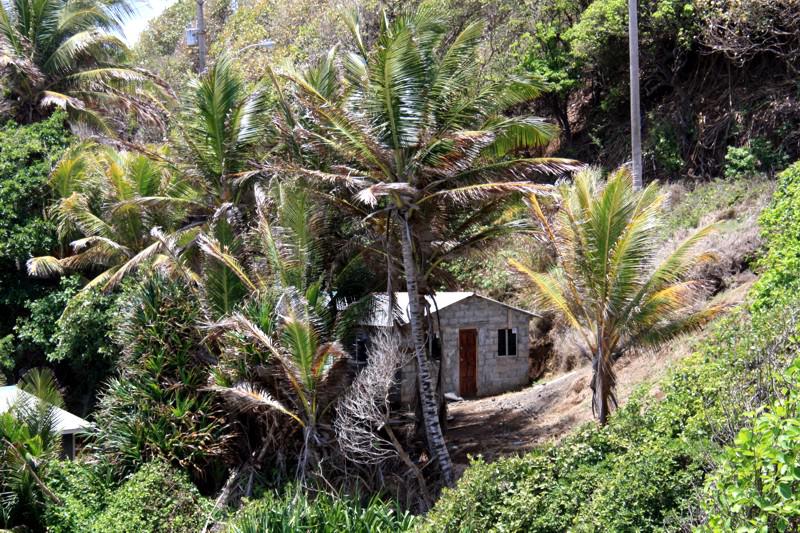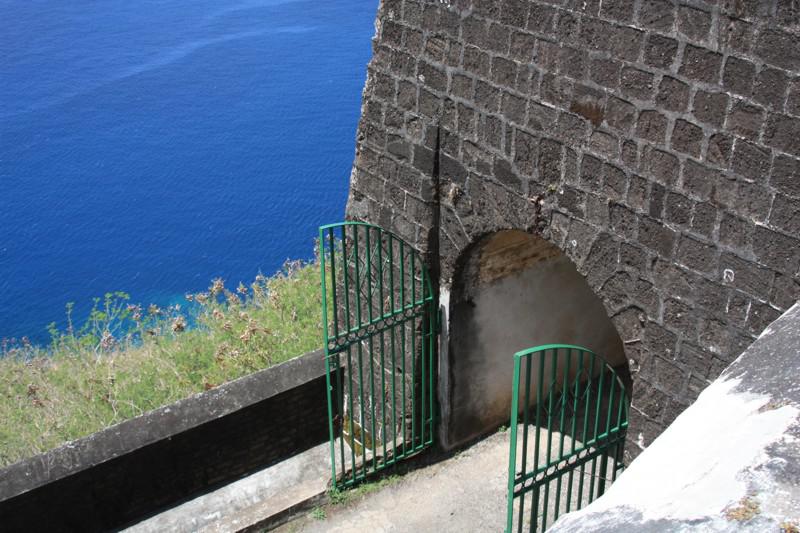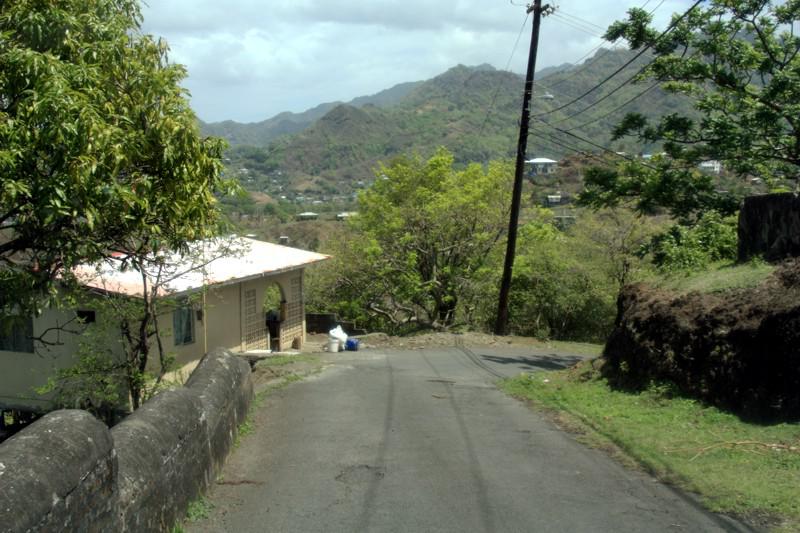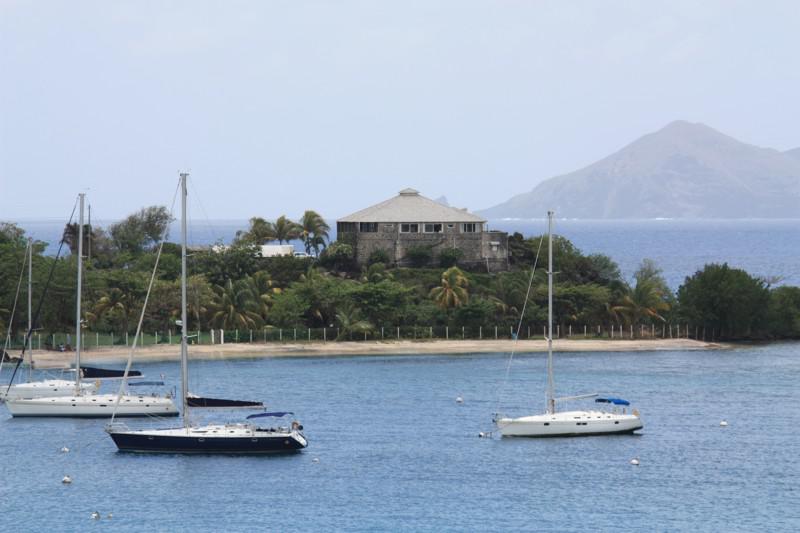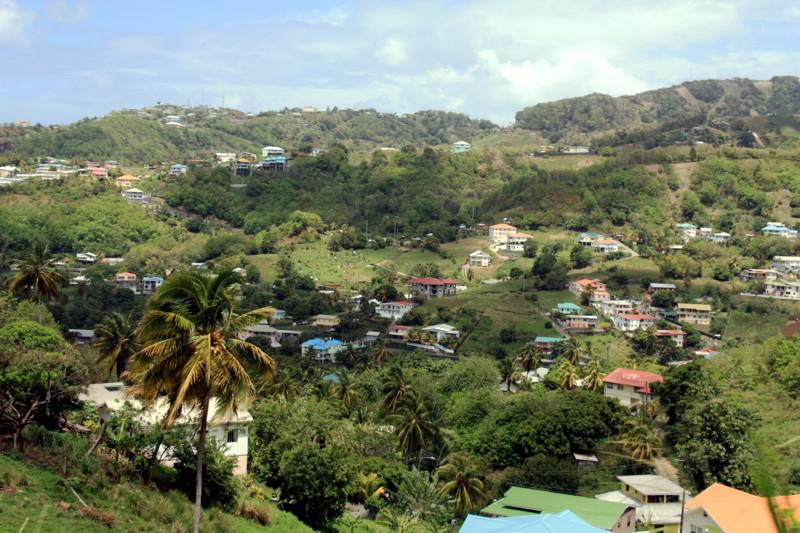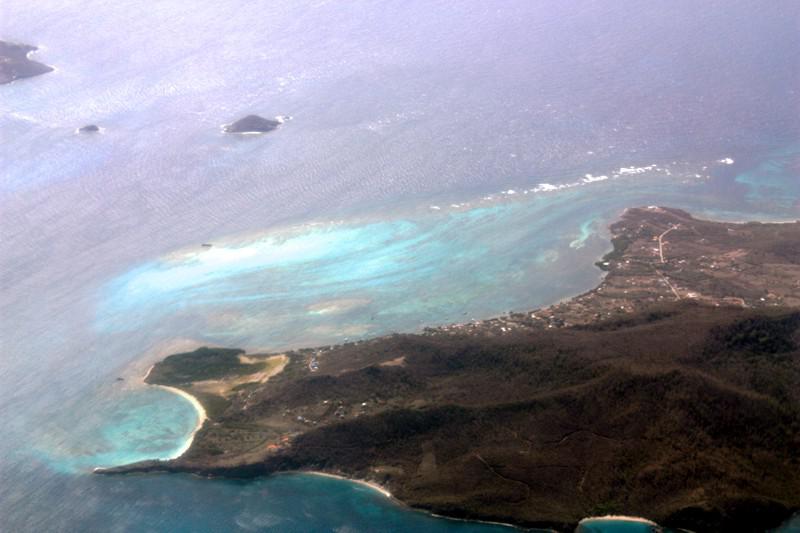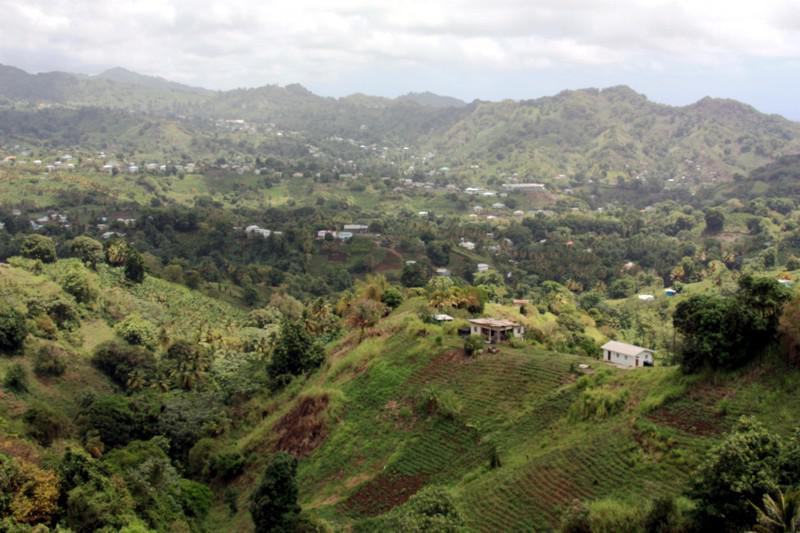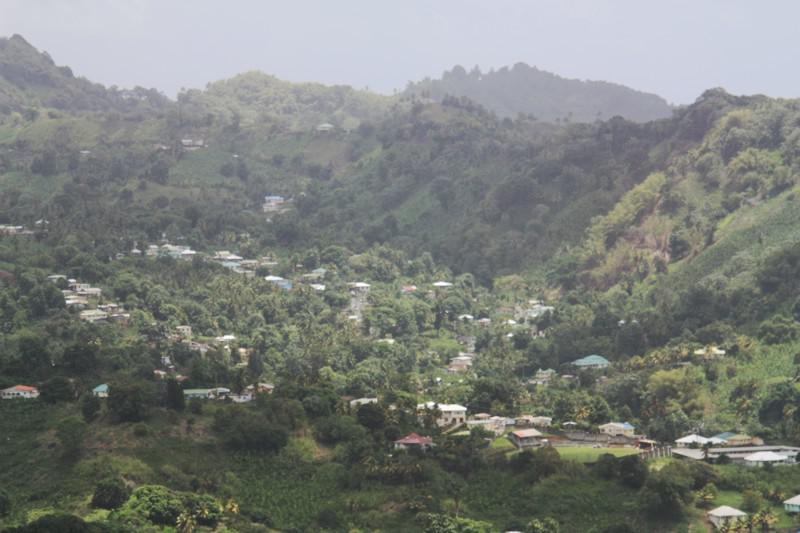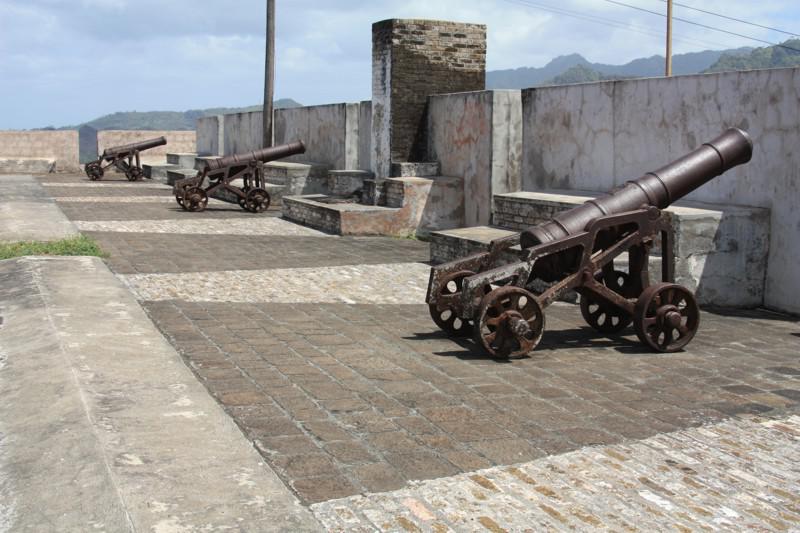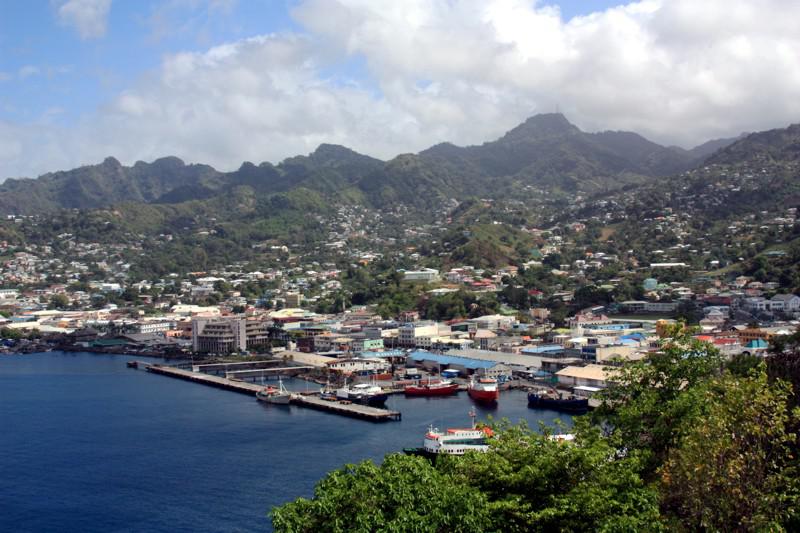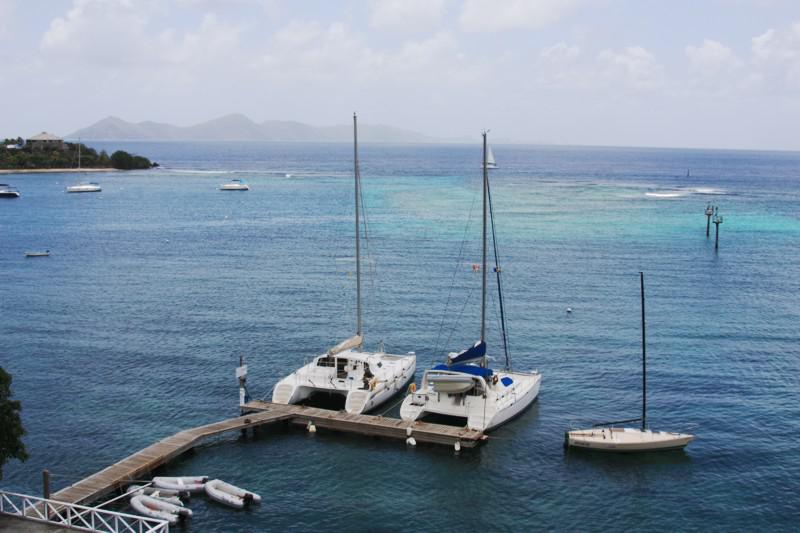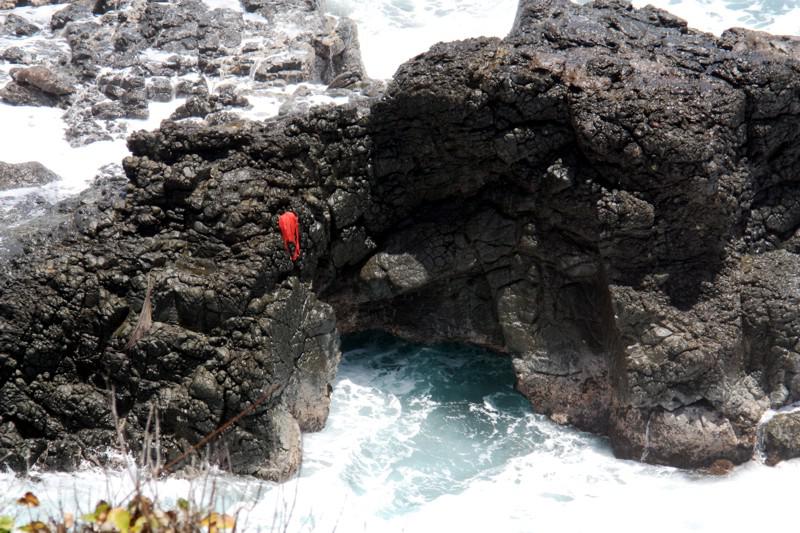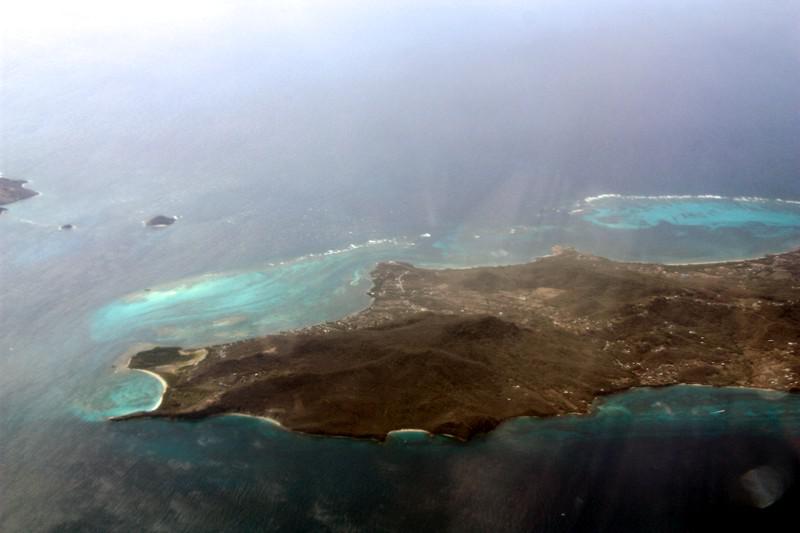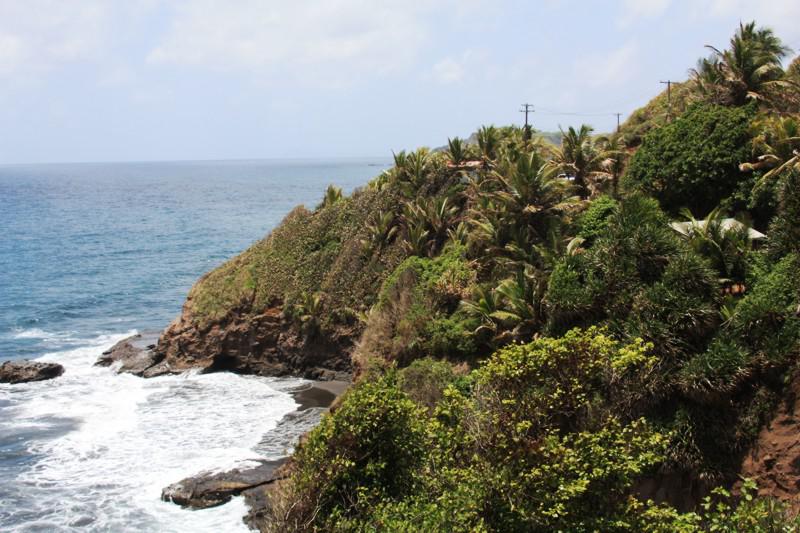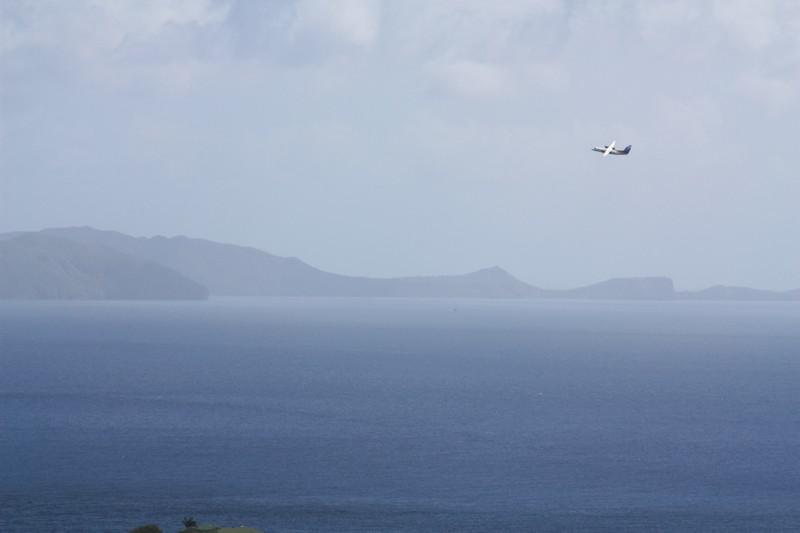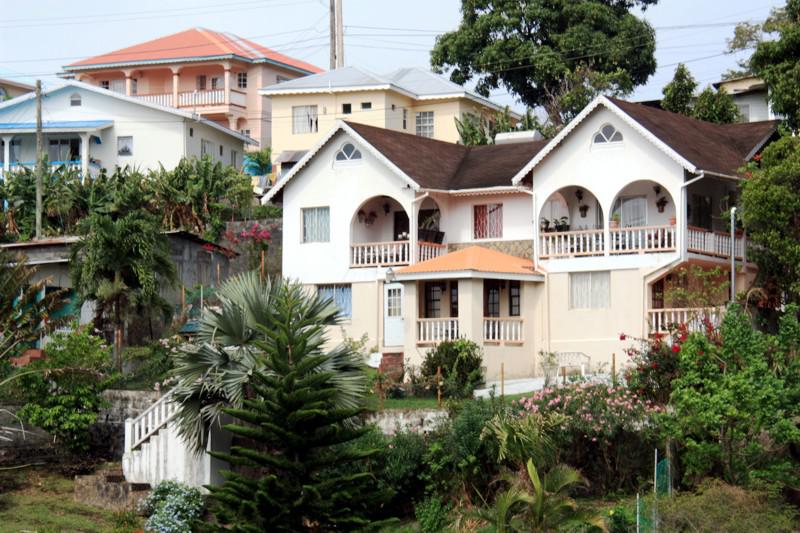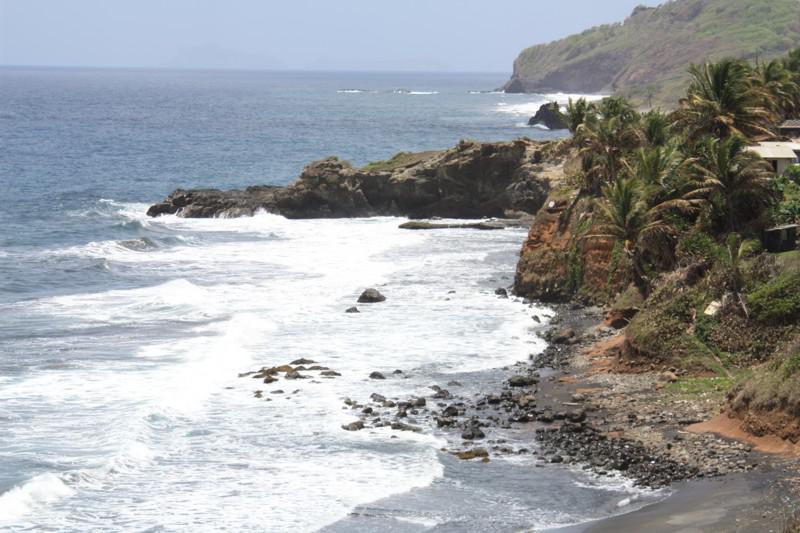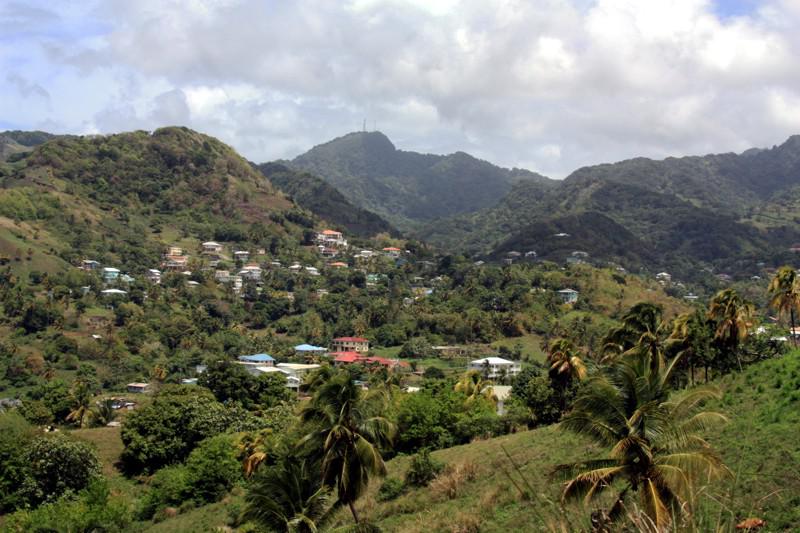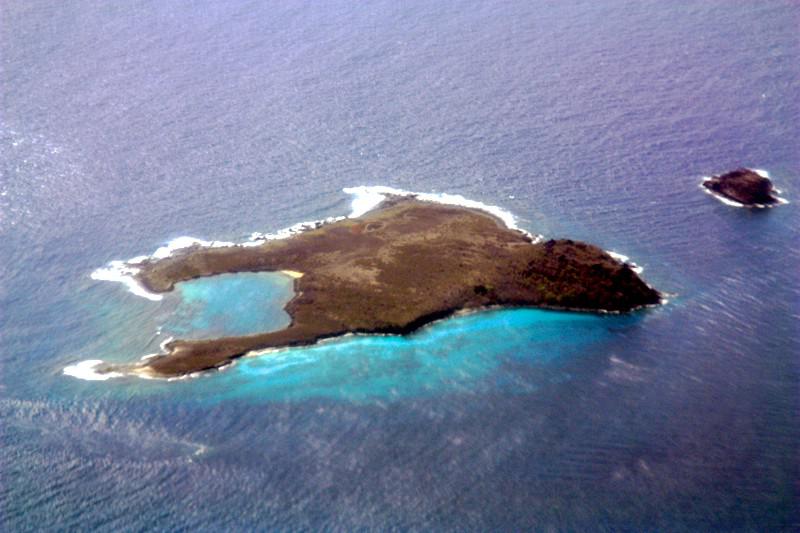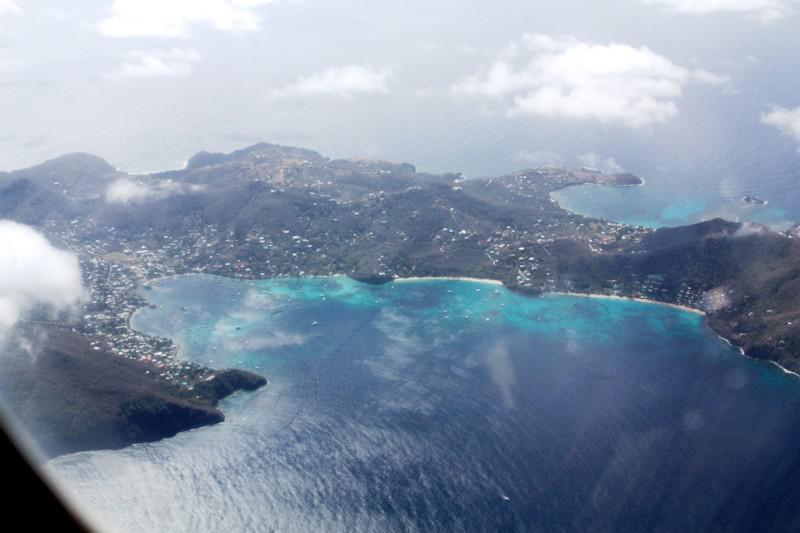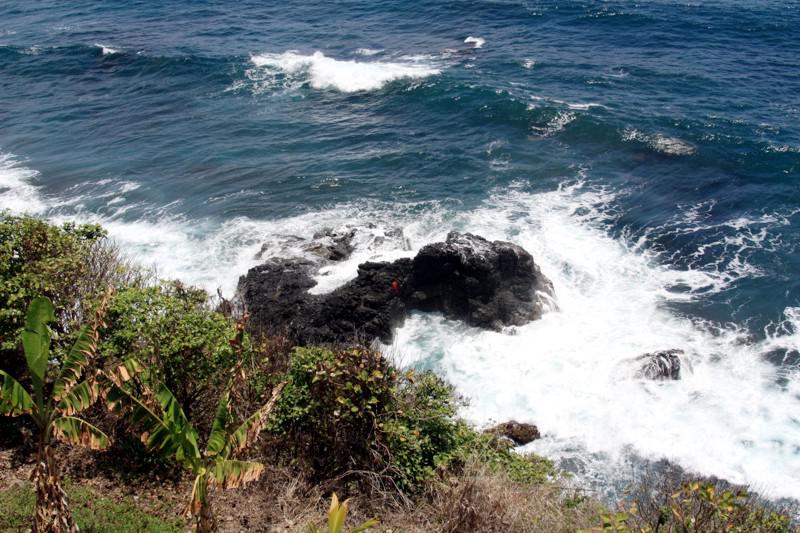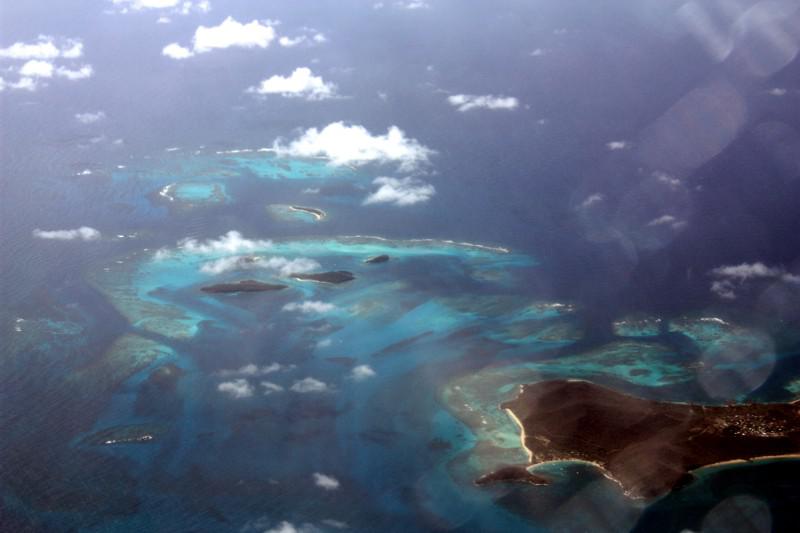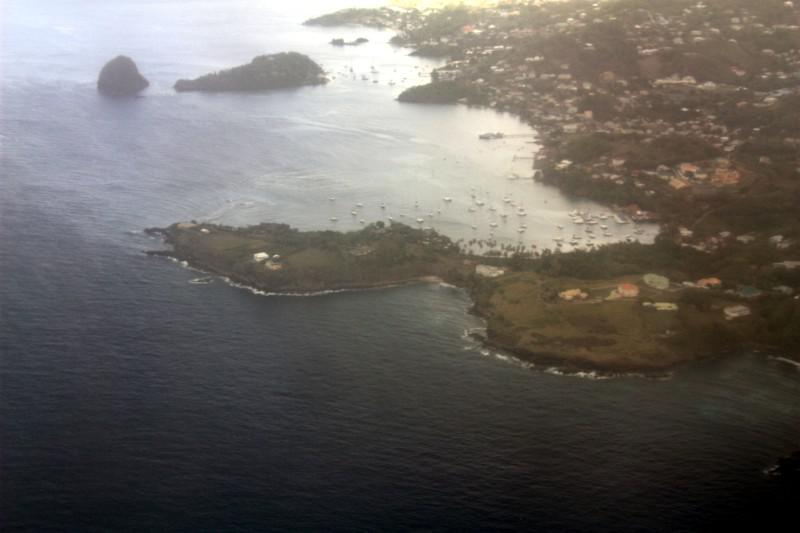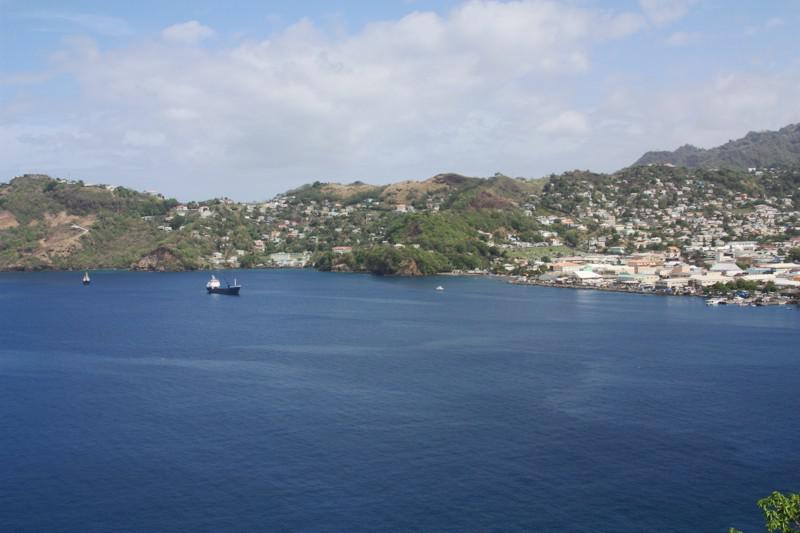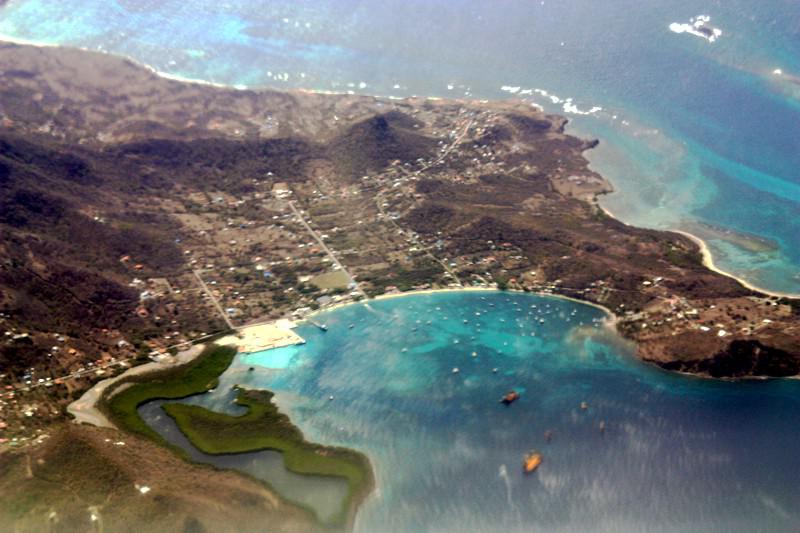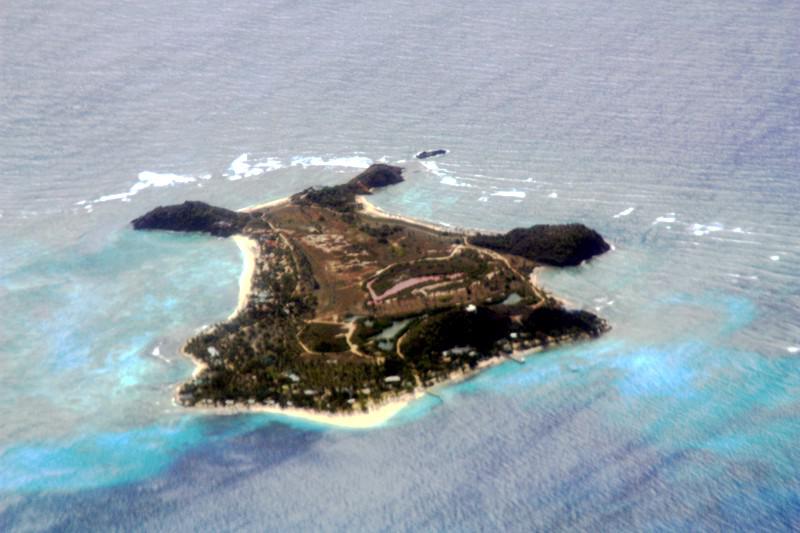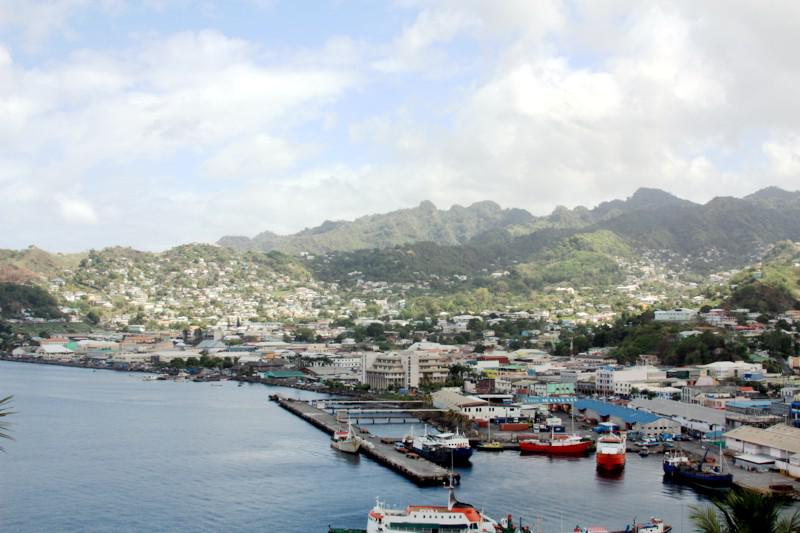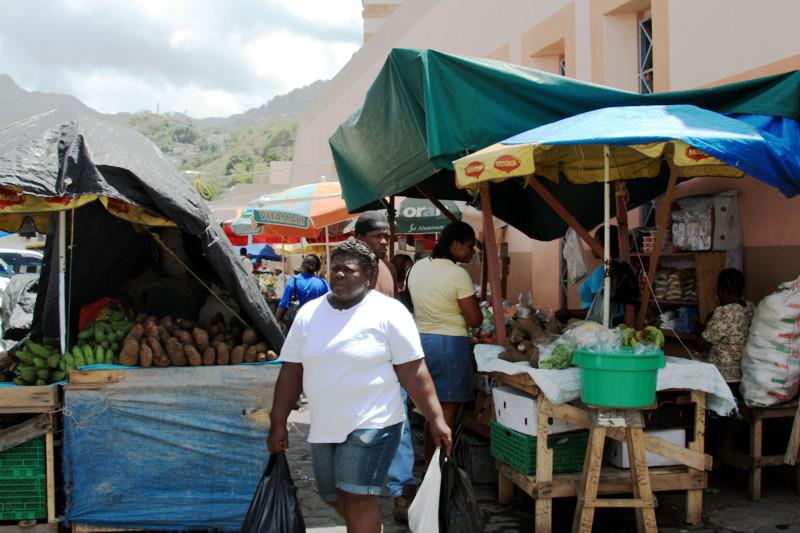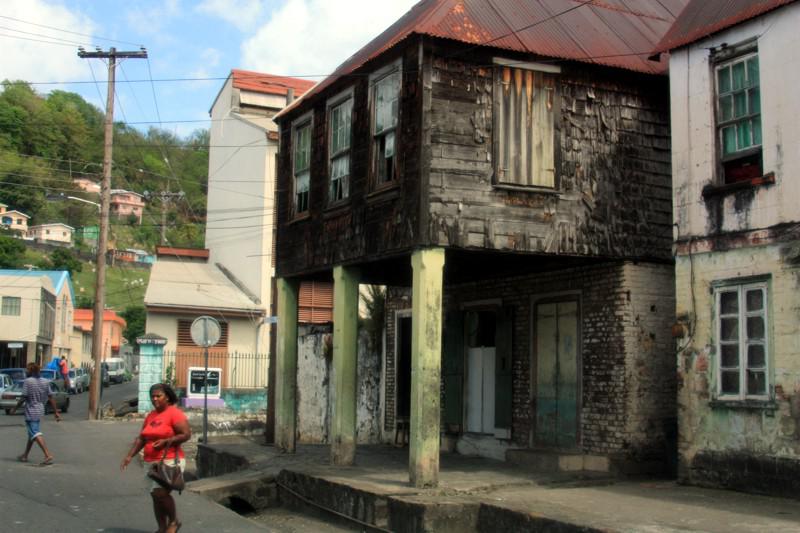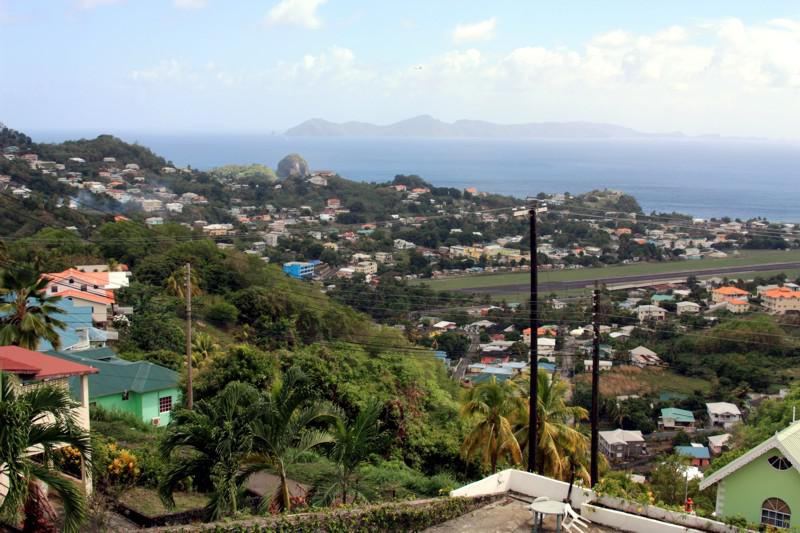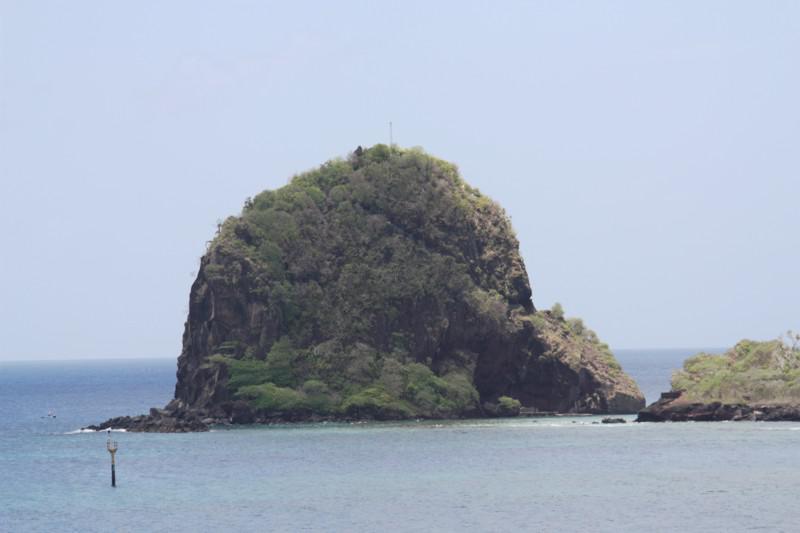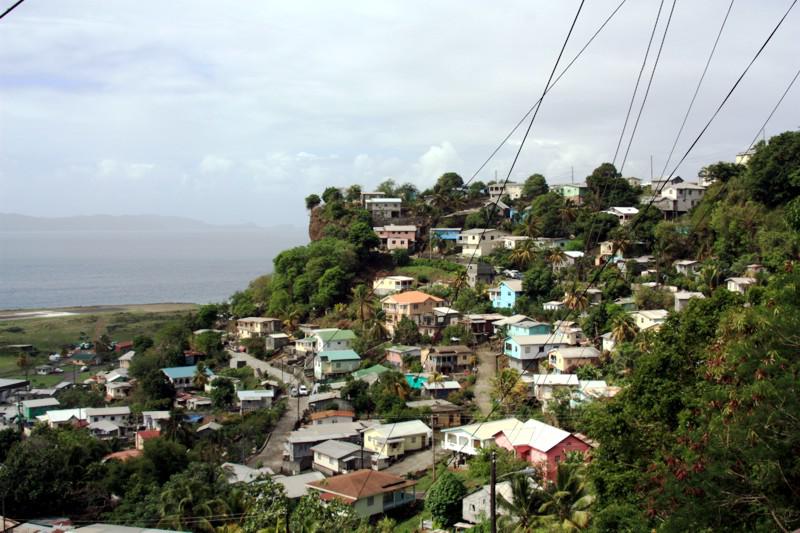Pictures of: Saint Vincent and the Grenadines
Location map
Airports
Hotels and other Accommodation
Golf Courses
What to visit
Where to Eat
Where to have fun
Consulates & Embassies
World Nomads
The Travel Insurance with the largest coverage

The Travel Insurance with the largest coverage

Saint Vincent and the Grenadines
Saint Vincent and the Grenadines is an island country in the Lesser Antilles Island arc, in the southern portion of the Windward Islands, which lie at the southern end of the eastern border of the Caribbean Sea where the latter meets the Atlantic Ocean. The country is also known as St. Vincent.
Its 389 km2 (150 sq mi) territory consists of the main island of Saint Vincent and the northern two-thirds of the Grenadines, which are the chain of smaller islands stretching south from Saint Vincent Island to Grenada. The main island of Saint Vincent measures 18 km (11 mi) long, 11 km (6.8 mi) in width and 344 km2 (133 sq mi) in area. From the most northern to the most southern points, the Grenadine Islands belong to Saint Vincent span 60.4 km (37.5 mi) with a combined area of 45 sq. Km (17 sq mi). Most of the nation lies within the Hurricane Belt.
To the north of Saint Vincent lies Saint Lucia, to the east Barbados. Saint Vincent and the Grenadines is a densely populated country (over 300 inhabitants / km2) with approximately 120,000 inhabitants.
Its capital is Kingstown, also its main port. The country has a French and British colonial history and is now part of the Organization of Eastern Caribbean States, CARICOM, the Commonwealth of Nations, the Bolivarian Alliance for the Americas and the Community of Latin American and Caribbean States (CELAC).
Its 389 km2 (150 sq mi) territory consists of the main island of Saint Vincent and the northern two-thirds of the Grenadines, which are the chain of smaller islands stretching south from Saint Vincent Island to Grenada. The main island of Saint Vincent measures 18 km (11 mi) long, 11 km (6.8 mi) in width and 344 km2 (133 sq mi) in area. From the most northern to the most southern points, the Grenadine Islands belong to Saint Vincent span 60.4 km (37.5 mi) with a combined area of 45 sq. Km (17 sq mi). Most of the nation lies within the Hurricane Belt.
To the north of Saint Vincent lies Saint Lucia, to the east Barbados. Saint Vincent and the Grenadines is a densely populated country (over 300 inhabitants / km2) with approximately 120,000 inhabitants.
Its capital is Kingstown, also its main port. The country has a French and British colonial history and is now part of the Organization of Eastern Caribbean States, CARICOM, the Commonwealth of Nations, the Bolivarian Alliance for the Americas and the Community of Latin American and Caribbean States (CELAC).
Documentation
When entering the country the visitors must have a valid passport for a minimum period of six months and a ticket leaving the country. When leaving São Vicente and Grenadinas, each visitor must pay an exit fee.
Passport holders issued in the EU do not require a visa to visit Saint Vincent and the Grenadines.
Passport holders issued in the EU do not require a visa to visit Saint Vincent and the Grenadines.
Official language
English
Currency
East Caribbean dollar
Tourism
From the lush rainforest of San Vicente full of ecological adventures, to the idyllic beaches, coral reefs and turquoise lagoons of the Grenadines, the SVG is a tropical paradise for yachting, diving, nature enjoyment and relaxing in luxurious hideaways.
Sail to St. Vincent and the Grenadines and experience the unforgettable magic of anchoring in secluded bays and lagoons with turquoise sea and white sandy beaches.
Find your own private island and claim your piece of paradise for the day.
The blue seas are the perfect place to relax, explore and enjoy all that the Caribbean has to offer.
Natural harbors, protected islets, managed moorings and specialized maritime services are all easily accessible in St. Vincent and the Grenadines.
Water sports are part of life.
The magnificent shallow reefs, full of color and life, are perfect for divers. Snorkel or swim with the green turtles at Tobago Cays.
Want to go deeper? Then immerse yourself and immerse yourself in the famous Bat Cave, try diving into wrecks or photograph an incredible variety of sea creatures. Experience the kind of underwater diving adventures found only in the top diving destinations in the world.
Divers will be delighted by the variety of sea creatures to see - and underwater photographers will think it's a dream come true.
There are also a wide variety of underwater habitats: walls, rock formations, coral reefs, sandy slopes and seagrass beds - each attracting its own way of life and each one welcoming it to explore.
Walk to the top of a volcano, the stunning waterfalls or the scenic coastal paths.
Sail to St. Vincent and the Grenadines and experience the unforgettable magic of anchoring in secluded bays and lagoons with turquoise sea and white sandy beaches.
Find your own private island and claim your piece of paradise for the day.
The blue seas are the perfect place to relax, explore and enjoy all that the Caribbean has to offer.
Natural harbors, protected islets, managed moorings and specialized maritime services are all easily accessible in St. Vincent and the Grenadines.
Water sports are part of life.
The magnificent shallow reefs, full of color and life, are perfect for divers. Snorkel or swim with the green turtles at Tobago Cays.
Want to go deeper? Then immerse yourself and immerse yourself in the famous Bat Cave, try diving into wrecks or photograph an incredible variety of sea creatures. Experience the kind of underwater diving adventures found only in the top diving destinations in the world.
Divers will be delighted by the variety of sea creatures to see - and underwater photographers will think it's a dream come true.
There are also a wide variety of underwater habitats: walls, rock formations, coral reefs, sandy slopes and seagrass beds - each attracting its own way of life and each one welcoming it to explore.
Walk to the top of a volcano, the stunning waterfalls or the scenic coastal paths.
Gastronomy
The waters of the Caribbean provide plenty of seafood, while the Forest Mountains produce edible vegetation.
Sea foods are sold fresh from the net by fishermen to domestic and restaurant establishments just along the villages. Outstanding "seafood" cuisines are callalou soup, spicy crabs and lobsters, and seafood souse. Luxurious dishes such as kingfish, kingfish, lambi and cioba.
What land yields is absolutely harvested from the wet vegetation throughout the country. Indigenous yields include manioc, yams, sweet potatoes, tannins. Native fruits consist of bananas, breadfruit, coconut, guava, mango, passion fruit, pineapple.
The Vincentian diet is characterized by simple, but delicious, portions of meals, from breakfast to dinner.
Sea foods are sold fresh from the net by fishermen to domestic and restaurant establishments just along the villages. Outstanding "seafood" cuisines are callalou soup, spicy crabs and lobsters, and seafood souse. Luxurious dishes such as kingfish, kingfish, lambi and cioba.
What land yields is absolutely harvested from the wet vegetation throughout the country. Indigenous yields include manioc, yams, sweet potatoes, tannins. Native fruits consist of bananas, breadfruit, coconut, guava, mango, passion fruit, pineapple.
The Vincentian diet is characterized by simple, but delicious, portions of meals, from breakfast to dinner.
Weather
Located in the eastern Caribbean, the islands of the Grenadines and St. Vincent are known for the warm weather all year round, which, along with the blue waters of the surrounding ocean, attracts visitors from all over the world. If you are planning a trip to Saint Vincent or the Grenadines, remember that even the most comfortable climates can become uncomfortable from time to time. While sunny weather is typical, there are times that are wetter than others.
Given the archipelago's proximity to the equator, the temperature remains fairly constant throughout the year, and is rarely below 65 degrees F. The January high is 85 degrees and the July high is 86 degrees. It may be slightly warmer in some inland areas of the larger islands, especially St. Vincent, which supports the rainforest, but the ocean moderates air temperatures to keep them relatively stable.
The dry season in Saint Vincent and the Grenadines is winter and early spring, especially from January to May. The wettest weather is summer, with July receiving the highest rainfall. Rain falls for an average of 26 days in July in São Vicente, but is mostly relegated to the northern third of the island. The Grenadines are generally drier. That leaves most of the day with good weather to enjoy beaches and other activities that the islands offer.
Hurricane season usually follows the rainy season, from June to November. However, unlike the rest of the Caribbean, Saint Vincent and the Grenadines are far enough south, losing many of the storms.
In an area such as St. Vincent and the Grenadines, where there is very little variation from season to season, humidity becomes an important consideration. In the summer, it may seem much warmer than it is due to higher levels of humidity. Winter tends to take some of the moisture out of the air.
Given the archipelago's proximity to the equator, the temperature remains fairly constant throughout the year, and is rarely below 65 degrees F. The January high is 85 degrees and the July high is 86 degrees. It may be slightly warmer in some inland areas of the larger islands, especially St. Vincent, which supports the rainforest, but the ocean moderates air temperatures to keep them relatively stable.
The dry season in Saint Vincent and the Grenadines is winter and early spring, especially from January to May. The wettest weather is summer, with July receiving the highest rainfall. Rain falls for an average of 26 days in July in São Vicente, but is mostly relegated to the northern third of the island. The Grenadines are generally drier. That leaves most of the day with good weather to enjoy beaches and other activities that the islands offer.
Hurricane season usually follows the rainy season, from June to November. However, unlike the rest of the Caribbean, Saint Vincent and the Grenadines are far enough south, losing many of the storms.
In an area such as St. Vincent and the Grenadines, where there is very little variation from season to season, humidity becomes an important consideration. In the summer, it may seem much warmer than it is due to higher levels of humidity. Winter tends to take some of the moisture out of the air.
Safety
The security conditions are reasonable, although there are some violent crimes, affecting mainly the local population. Tourists can be affected mainly by opportunistic robberies, so some preventive measures are recommended, such as:
- Avoid isolated areas, including beaches, after dark;
- Avoid walking alone at night;
- Do not carry large amounts of money and not display jewelry or other valuables;
- Maintain a discreet attitude in the use of ATMs, avoiding doing so in poorly lit or isolated areas;
- Save valuables and travel documents in safes, whenever possible;
- Keep the bedroom doors always locked;
- Use only taxis duly registered and identified;
- Adopt responsible behavior, respecting local laws and customs;
- In case you are faced with an attempted theft, do not offer resistance.
- Avoid isolated areas, including beaches, after dark;
- Avoid walking alone at night;
- Do not carry large amounts of money and not display jewelry or other valuables;
- Maintain a discreet attitude in the use of ATMs, avoiding doing so in poorly lit or isolated areas;
- Save valuables and travel documents in safes, whenever possible;
- Keep the bedroom doors always locked;
- Use only taxis duly registered and identified;
- Adopt responsible behavior, respecting local laws and customs;
- In case you are faced with an attempted theft, do not offer resistance.
Health care
Medical services and facilities are reasonable, but serious cases and very specialized treatments may require evacuation. Private services tend to be very costly, especially in case of hospitalization. It is advisable to carry out health insurance covering all medical expenses, including repatriation or evacuation to another country.
Electricity and Telecommunications
Electricity
The electricity is 220 / 240V and 50 Hz.
It is advisable to have a universal adapter kit for the sockets.
Telecommunications
The communications network is reasonable. There is mobile phone and Internet coverage on the larger islands. To call from abroad to a local number, the international access code must be dialed, followed by the country code (1 784) and the seven-digit local number.
The electricity is 220 / 240V and 50 Hz.
It is advisable to have a universal adapter kit for the sockets.
Telecommunications
The communications network is reasonable. There is mobile phone and Internet coverage on the larger islands. To call from abroad to a local number, the international access code must be dialed, followed by the country code (1 784) and the seven-digit local number.
Other world tourist destinations
Why to book with TURISMO & VIAGENS
The best prices
Our partnerships with the world´s largest operators offer research on the best market prices.
More options
At Rotas Turisticos you can book the hotel, buy the air ticket, book the transfer from the airport to the hotel and vice versa, book the local excursions, rent the car, take travel insurance and consult the places to visit and where to go.
Holiday Tips & Destinations
Hundreds of holiday destinations with all the options that allow you to easily choose the destination that best suits your dream vacation.
TURISMO & VIAGENS
Links

